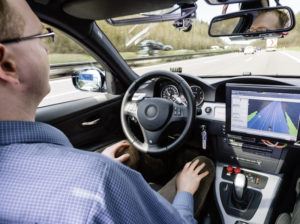UK bill sets out self-driving car insurance and electric vehicle charge point proposals
The Government has set out new insurance proposals for self-driving cars as part of the Vehicle Technology and Aviation Bill.

The Government will now extend compulsory motor vehicle insurance to create a single insurer model to protect victims where an autonomous vehicle causes a crash in automated mode.
As previously announced by the DfT, the bill proposes that a single insurance product must cover autonomous vehicles for both the motorist when they are driving and the car when it is in automated mode. However, if the vehicle’s owner has made unauthorised changes to the car’s software or not installed a required policy update, then they become liable.
The proposal also sets out that the DfT will determine which cars will be classed as self-driving.
The proposals follow a consultation by the Department for Transport on the issue of insurance for self-driving cars that closed in September 2016.
David Williams, head of underwriting, at AXA UK, said: “The vast majority of accidents are caused by human error and we see automated vehicles having a massive impact, reducing the number and severity of accidents. As well as making our roads safer, insurance premiums are based on the cost of claims and therefore we expect substantially reduced premiums to follow.”
Other proposals set out in the Bill would bring easier access to infrastructure for electric vehicles.
Motorway services and large fuel retailers could be made to provide electric charge points and hydrogen refuelling stations under planned new laws.
The measures could also make sure data about the location and availability of charging stations is openly available, and make it easier to use the different networks which are available. They follow a public consultation on measures to improve charging infrastructure.
John Hayes, Minister of State for Transport, said: “I recognise that to encourage more drivers to go electric, the infrastructure needs to become even more widespread than the 11,000 charging points already in place and more straightforward. We are determined to do all we can to make electric vehicles work for everyone and these new laws will help make this a reality.”
However, the Institute of the Motor Industry – the professional association for individuals working in the motor industry – said that more charging points isn’t the only thing needed to encourage greater adoption of electric and hybrid cars.
IMI CEO Steve Nash said: “The Government has recognised the most obvious barrier to consumers buying electric cars, which is the charging infrastructure, and it is taking direct steps to address this. However, it needs to recognise that this is the biggest change in the automotive industry for over 100 years and there are other barriers that must be addressed too, not least the skills gap.”












